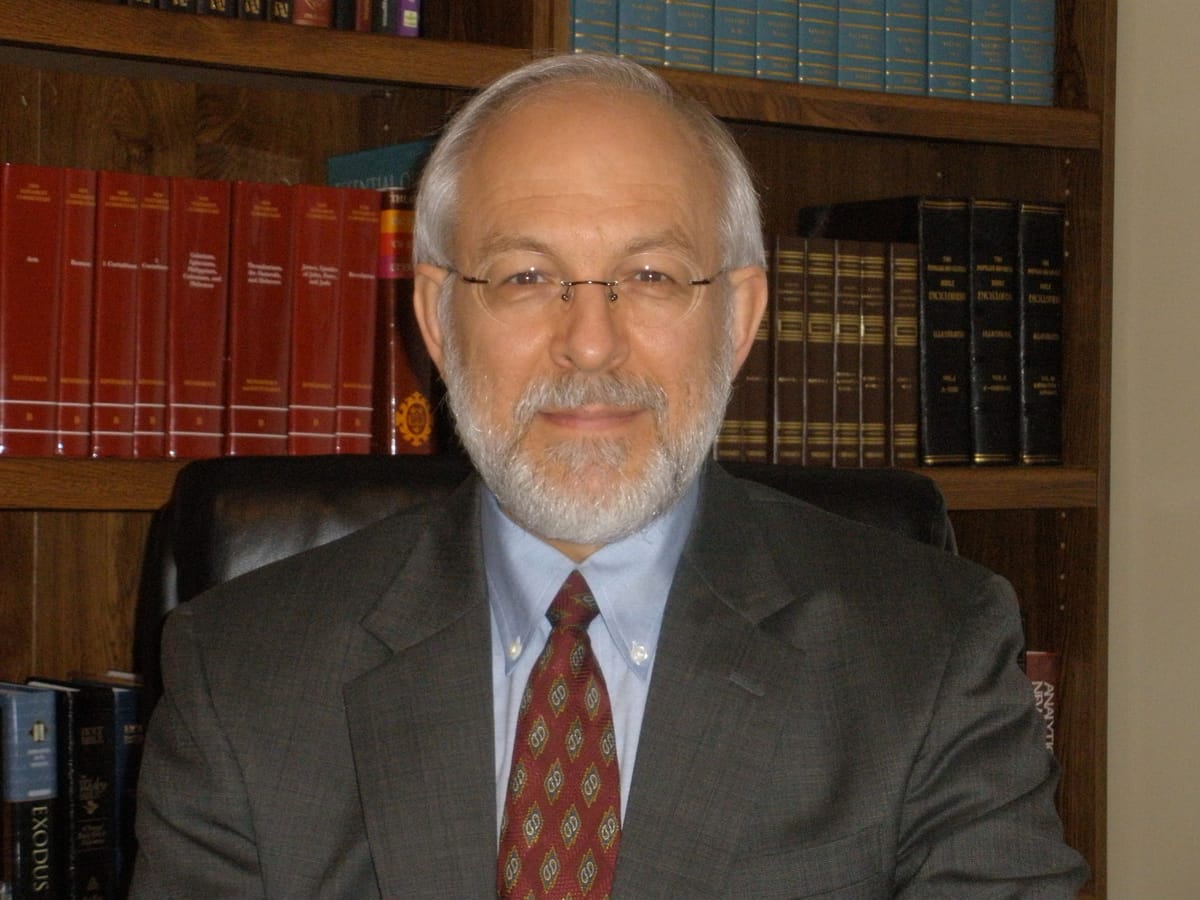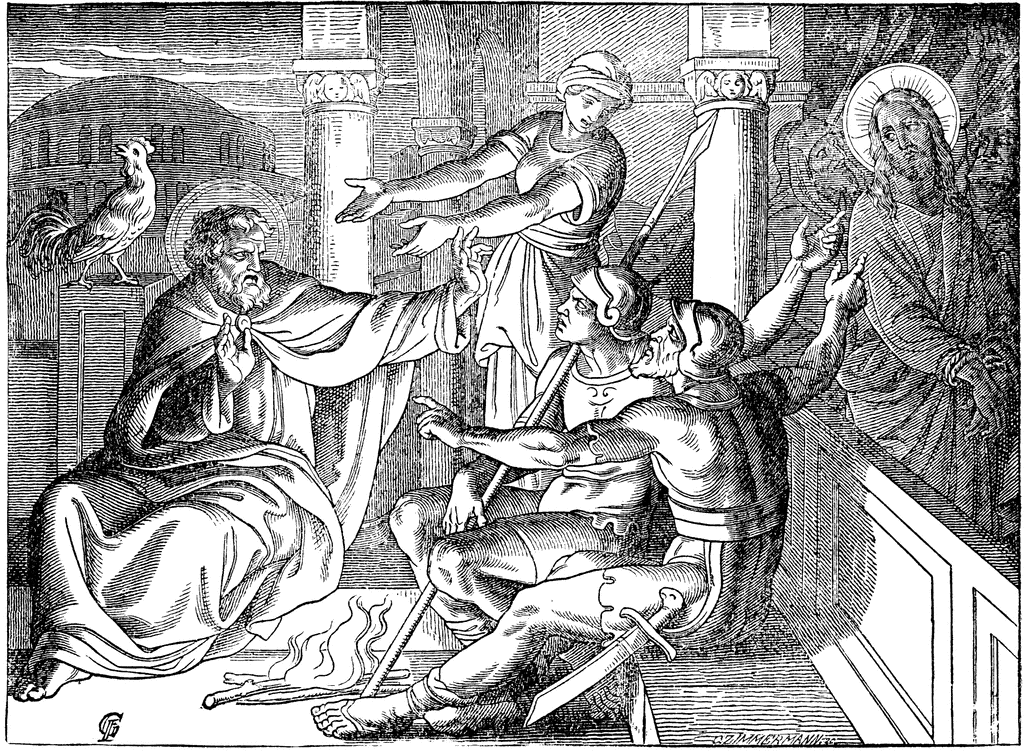With the calendar approaching the time of year that the church calls Holy Week, it seems appropriate that we set forth this chronological perspective on the events leading up to the trial, death, and resurrection of our Savior.
This perspective is part three of our serialization of Dr. Howard Rand’s treatise on the titular topic. We are grateful to those at Destiny who have long ago given us permission to reproduce the works of Dr. Rand (1889-1991), and that of other authors from the bound volumes of Destiny magazine.
Since Dr. Rand has used boldface type to set apart Scripture verses, we use only underlining and italics for our emphasis—unless otherwise noted. All comments in [brackets] are ours. For easier readability, we have also broken large paragraphs into smaller ones. QUOTE:
THURSDAY, MARCH 17th, NISAN 14th
The disciples made preparation for the keeping of the Passover as this was the day on which such preparation was to be made. That evening, the beginning of this new day, the Lord and His disciples partook of the evening meal together. The description as given of the Lord's Supper precludes it from being the Feast of the Passover itself. The Passover Supper itself was to be eaten as follows:
"And thus shall ye eat it; with your loins girded, your shoes on your feet, and your staff in your hand; and ye shall eat it in haste: it is the Lord's passover." (Ex. 12: 11.)
In Ferrrar Fenton's translation, direct from the Greek into English, the fact that Jesus did not actually partake of the Passover Supper itself is clearly indicated:
"So they went; and finding everything as He had told them, they prepared for the Passover. And when the hour arrived, [that is, the day of preparation], He reclined, and the twelve apostles were with Him. And He said to them: I have longingly desired to eat this Passover with you before My suffering; however, I tell you that I shall not eat of it, until it can be administered in the kingdom of God.'
Then taking the cup, and giving thanks, He said: ‘Take this, and divide it among yourselves; for I tell you that I will not drink of the product of the vine, until the Kingdom of God has come.’ He then took the bread, and giving thanks, He broke it, and handed it to them, saying, ‘This is My body, which is delivered up for you; do this in remembrance of Me.’
And He did the same also with the after-dinner cup, saying, ‘this cup is a New Settlement in My blood, which is poured out for your sakes. But nevertheless the hand of My betrayer is with My own upon the table.’" (Luke 22: 13-21.)
John asked Jesus who it was? Jesus said:
"‘He it is, to whom I shall give a sop, when I have dipped it.’ And when he had dipped the sop, he gave it to Judas Iscariot, the son of Simon." (John 13: 26.)
It is well to note here that the Paschal Lamb had to be roasted with fire, not sodden with water. This dish of sodden food would not have been found upon the table of a Paschal Feast. The present occasion was merely the ceremonial supper of cleansing which preceded the Paschal Feast and ushered in the Preparation Day.
Judas Iscariot went out to complete his mission of betrayal. Peter declared his devotion to Jesus, but Jesus told him that before the cock would crow he would have denied Him three times.
The supper ended, they sang a hymn and then left the room and Jesus, as was His custom, went to the Mount of Olives and the disciples followed Him. He was to be smitten and they were to be scattered and so He told them they would fall away from Him that night, then He added:
"But after I am risen again, I will go before you into Galilee." (Matt. 26: 32.)
Finally Jesus and His disciples came to Gethsemane where He bade them pray and not enter into temptation, while He went further on to pray alone:
"And he took with him Peter and the two sons of Zebedee, and began to be sorrowful and very heavy. Then saith he unto them, My soul is exceeding sorrowful, even unto death: tarry ye here, and watch with me. And he went a little further, and fell on his face, and prayed, saying, O my Father, if it be possible, let this cup pass from me: nevertheless not as I will, but as thou wilt." (Matt. 26: 37-39.)
An Angel appeared from heaven and strengthened Him, yet being in agony He prayed more earnestly, in that His sweat was as it were great drops of blood falling down to the ground. When He returned to the three, after praying, He found them asleep and He said to Peter:
"What, could ye not watch with me one hour? Watch and pray, that ye enter not into temptation: the spirit indeed is willing, but the flesh is weak." (Matt. 26: 40-41.)
Jesus went away a second time to pray alone and, returning, found the three asleep. He then went a third time to pray, saying the same words as before and when He returned said to His disciples:
"Sleep on now, and take your rest: behold, the hour is at hand, and the son of man is betrayed into the hands of sinners. Rise, let us be going: behold, he is at hand that doth betray me." (Matt. 26: 45-46.)
Judas, who betrayed Him, was acquainted with the fact that Jesus, with His disciples, often came to the garden of Gethsemane and so this night he led an armed band with officers from the Chief Priests and Pharisees to this place.
Judas informed them that the one he kissed would be He whom they sought. Having been betrayed with a kiss, Jesus said to Judas, "Dost thou deliver up the Son of man with a kiss?" Addressing the posse Jesus asked them, "whom seek ye?" They replied, "Jesus of Nazareth," and Jesus said unto them, "I am he."
The he is not in the original and in His reply Jesus identified Himself with the "I AM" to whom Moses talked when he drew near to the burning bush in the wilderness (Exodus 3: 13-14). The effect of Jesus thus declaring Himself as identified with the I AM and Deity is thus recorded:
"And Judas also, which betrayed him, stood with them. As soon then as he had said unto them, I am he, they went backward, and fell to the ground. Then asked he them again, Whom seek ye? And they said, Jesus of Nazareth. Jesus answered, I have told you that I am he: if therefore ye seek me, let these go their way." (John 18: 5-8.)
When they laid hands upon Jesus, Simon Peter drew his sword and smote Malchus, the servant of the High Priest, cutting off his ear. Jesus touched his ear and healed it, then He addressed Peter:
"Put up again thy sword into his place: for all they that take the sword shall perish with the sword." (Matt. 26: 52.)
In this statement Jesus condemned the aggressor and declared that such will be overcome by the sword in the hand of the defender. Then He declared:
"Thinkest thou that I cannot now pray to my Father, and he shall presently give me more than twelve legions of angels? [A Roman legion at the time of Christ consisted of about 6,000 men.] But how then shall the scriptures be fulfilled, that thus it must be?" (Matt. 26: 53-54.)
Jesus then turned to the multitude and chided them, asking if they had come out to take a thief with sword and staves. Why did they not take Him as He sat daily teaching in the Temple? Following this questioning of the posse, the disciples forsook Him and fled:
"Then the band and the captain and officers of the Jews took Jesus, and bound him, And led him away to Annas first; for he was father in law to Caiaphas, which was the high priest that same year." (John 18: 12-13.)
Annas sent Him bound to Caiaphas. It was Caiaphas who had given counsel to the Jews, that it was expedient that one man should die for the people than that the whole nation should perish. Thus as High Priest he was prophesying, no doubt unknown to himself, that Jesus should die for the nation and for the children of God scattered abroad (John 11: 48-52).
As a prisoner Jesus was brought into the house where all the Chief Priests and Scribes and Elders came and assembled together unto Caiaphas. Peter followed him afar off, as well as another disciple who went in with Jesus, but Peter stood at the door until this other disciple spoke to the girl who attended the door and Peter was allowed to enter.
The High Priest now questioned Jesus regarding His doctrines, but Jesus referred him to the witnesses, saying that He had spoken openly to the world, taught in their Synagogue and Temple, and that He had done nothing in secret. He said:
"Why askest thou me? Ask them which heard me, what I have said unto them: behold, they know what I said. And when he had thus spoken, one of the officers which stood by struck Jesus with the palm of his hand, saying, Answerest thou the high priest so? Jesus answered him, If I have spoken evil, bear witness of the evil: but if well, why smitest thou me?" (John 18: 21-23.)
The whole counsel now sought out false witnesses against Jesus that they might put Him to death, but they found none. Finally two false witnesses were found and testified:
"This fellow said, I am able to destroy the temple of God, and to build it in three days." (Matt. 26: 61.)
The High Priest now arose and questioned Him: "Answerest thou nothing? What is it which these witness against thee?" But Jesus maintained His silence. The High Priest then put a direct question to Him:
"I adjure thee by the living god, that thou tell us whether thou be the Christ, the Son of God." (Matt. 26: 63.)
Jesus did not hesitate, but answered the High Priest:
"Thou hast said: nevertheless I say unto you, Hereafter shall ye see the Son of man sitting on the right hand of power, and coming in the clouds of heaven." (Matt. 26: 64.)
This was too much for the High Priest, who rent his garments, made a show of righteous indignation, and said:
"He hath spoken blasphemy; what further need have we of witnesses? Behold, now ye have heard his blasphemy. What think ye? They answered and said, He is guilty of death." (Matt. 26: 65-66.)
The men who held Jesus began to mock Him, and smote Him, and some spit on Him, and they spat on His face and struck Him, saying: "Prophesy unto us, thou Christ, who is it that smote thee?"
Now Peter was sitting without the court and a maid servant accused him of being one of Jesus' followers and he denied it, saying that he knew Him not. Again Peter was asked the same question and again he denied any knowledge of Jesus and still again, for the third time, he denied it, the last time with an oath, saying: "I know not the man."
"And immediately the cock crew. And Peter remembered the word of Jesus, which said unto him, Before the cock crow, thou shalt deny me thrice, And he went out, and wept bitterly." (Matt. 26: 74-75.)
END QUOTE
(To be continued.)
END




